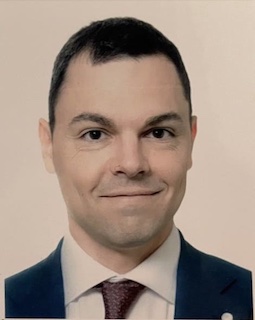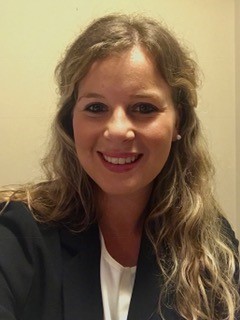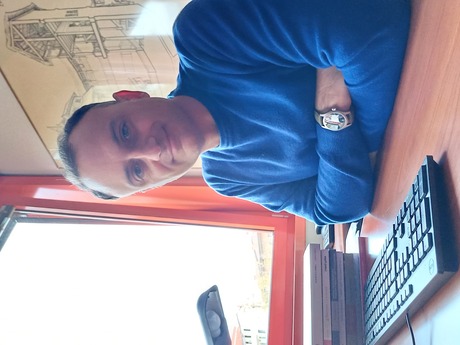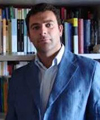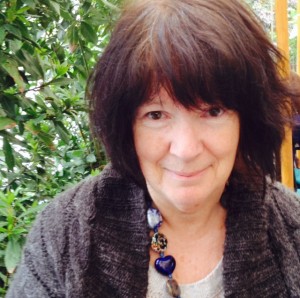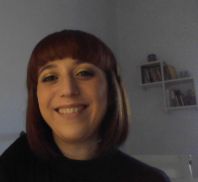Studying at the University of Verona
Here you can find information on the organisational aspects of the Programme, lecture timetables, learning activities and useful contact details for your time at the University, from enrolment to graduation.
Academic calendar
The academic calendar shows the deadlines and scheduled events that are relevant to students, teaching and technical-administrative staff of the University. Public holidays and University closures are also indicated. The academic year normally begins on 1 October each year and ends on 30 September of the following year.
Course calendar
The Academic Calendar sets out the degree programme lecture and exam timetables, as well as the relevant university closure dates..
| Period | From | To |
|---|---|---|
| I semestre (Lingue e letterature straniere) | Sep 26, 2022 | Dec 23, 2022 |
| Annuale (Lingue e letterature straniere) | Sep 26, 2022 | May 27, 2023 |
| II semestre (Lingue e letterature straniere) | Feb 13, 2023 | May 27, 2023 |
| Session | From | To |
|---|---|---|
| ESAMI LINGUE - sessione invernale | Jan 9, 2023 | Feb 11, 2023 |
| ESAMI LINGUE - sessione estiva | May 29, 2023 | Jul 22, 2023 |
| ESAMI LINGUE - sessione autunnale | Aug 28, 2023 | Sep 23, 2023 |
| Session | From | To |
|---|---|---|
| LAUREE LINGUE - sessione autunnale (a.a. 2021-2022) | Nov 7, 2022 | Nov 12, 2022 |
| LAUREE LINGUE - sessione straordinaria (a.a. 2021-2022) | Mar 31, 2023 | Apr 6, 2023 |
| LAUREE LINGUE - sessione estiva (a.a. 2022-2023) | Jul 10, 2023 | Jul 15, 2023 |
Exam calendar
Exam dates and rounds are managed by the relevant Foreign Languages and Literatures Teaching and Student Services Unit.
To view all the exam sessions available, please use the Exam dashboard on ESSE3.
If you forgot your login details or have problems logging in, please contact the relevant IT HelpDesk, or check the login details recovery web page.
Should you have any doubts or questions, please check the Enrollment FAQs
Academic staff
 federica.barboni@univr.it
federica.barboni@univr.it
 francesca.bazzani@univr.it
francesca.bazzani@univr.it
 benedetta.binacchi@univr.it
benedetta.binacchi@univr.it
 elisa.dallarosa@univr.it
elisa.dallarosa@univr.it
 wenwen.huang@univr.it
wenwen.huang@univr.it
 lorenzo.loiudice@univr.it
lorenzo.loiudice@univr.it
 beatrice.melodiafesta@univr.it
beatrice.melodiafesta@univr.it
Morbiato Giacomo
 giacomo.morbiato@univr.it
giacomo.morbiato@univr.it
 neliana.orlandi@univr.it
neliana.orlandi@univr.it
 sara.paolini@univr.it
sara.paolini@univr.it
Study Plan
The Study Plan includes all modules, teaching and learning activities that each student will need to undertake during their time at the University.
Please select your Study Plan based on your enrollment year.
1° Year
| Modules | Credits | TAF | SSD |
|---|
German literature and culture 1
Spanish Literature and Culture 1
German literature and culture 1
Spanish Literature and Culture 1
2° Year activated in the A.Y. 2023/2024
| Modules | Credits | TAF | SSD |
|---|
English literature and culture 2
French literature and culture 2
German literature and culture 2
Spanish literature and culture 2
English literature and culture 2
French literature and culture 2
German literature and culture 2
Spanish literature and culture 2
Geography of communication and international trade
Italian literature and culture
Modern and Contemporary Economic History
Theory and Techniques of communication
3° Year It will be activated in the A.Y. 2024/2025
| Modules | Credits | TAF | SSD |
|---|
Comparative and European Public law
Principles of international marketing
| Modules | Credits | TAF | SSD |
|---|
German literature and culture 1
Spanish Literature and Culture 1
German literature and culture 1
Spanish Literature and Culture 1
| Modules | Credits | TAF | SSD |
|---|
English literature and culture 2
French literature and culture 2
German literature and culture 2
Spanish literature and culture 2
English literature and culture 2
French literature and culture 2
German literature and culture 2
Spanish literature and culture 2
Geography of communication and international trade
Italian literature and culture
Modern and Contemporary Economic History
Theory and Techniques of communication
| Modules | Credits | TAF | SSD |
|---|
Comparative and European Public law
Principles of international marketing
| Modules | Credits | TAF | SSD |
|---|
Legend | Type of training activity (TTA)
TAF (Type of Educational Activity) All courses and activities are classified into different types of educational activities, indicated by a letter.
Sociology of Cultural Processes (2023/2024)
Teaching code
4S00745
Teacher
Coordinator
Credits
6
Also offered in courses:
- Sociology of culture and communication of the course Bachelor's degree in Languages and literatures for publishing and digital media
Language
Italian
Scientific Disciplinary Sector (SSD)
SPS/08 - SOCIOLOGY OF CULTURE AND COMMUNICATION
Period
II semestre (Lingue e letterature straniere) dal Feb 19, 2024 al May 25, 2024.
Courses Single
Authorized
Learning objectives
The course is oriented to introduce students to the critical knowledge of: 1. the concept of culture and its components in a sociological perspective; 2. the characteristics of main cultural processes in act in contemporary western societies; 3. the historical evolution of Western travel culture. At the end of the course the student must demonstrate: 1. Know how to use the concept of culture as defined by contemporary human and social sciences; 2. have a conceptual repertoire and a specific lexicon to appropriately describe the cultural phenomena of contemporaneity; 3. to be aware of the main cultural processes that are at work in the complex western societies of this beginning of the millennium and in particular to be aware of the distinctive features of the modern culture of the West; 4. know how to describe the essential elements of the historical-social evolution of Western travel culture, with particular reference to the journey of pleasure, relaxation and evasion typical of contemporary tourism; 5. Know how to interpret the many types of tourist behavior. 5. saper interpre
Prerequisites and basic notions
There are no specific requirements to address the teaching content.
Program
The course will be divided into three parts, in which the following topics will be developed:
Part one
Sociological introduction to the topics
What is society and what is a social fact. Social Relationship as the Basic Concept and Object of Sociological Research and Knowledge. The different approaches to the study of social relationships.
Part II
Culture and Society
1) The concept of culture in social sciences.
A. What is culture (humanistic, anthropological and sociological perspective in comparison);
B. What are the social functions of culture (relationship between culture and society)?
C. what are the basic elements of culture (meanings, symbols, languages, codes, values, social norms, rites, myths).
2) Production, Distribution and Reception of Culture.
A. The fields of production of culture (science, law, art, religion, communication).
3) Cultural Trends of Societies in Mature Modernity.
Part III
Tourism as a cultural product
1) Symbolic aspects of travel and tourism
2) The sociological definition of tourist behavior
3) Historical forms of tourism
Or:
1) Elements of communication theory.
2) Orality, writing and printing and their influences on thought and social life.
Texts for the assessment test
A. Elementi di Sociologia generale, McGraw-Hill.
B. Griswold W., Sociologia della cultura, Bologna, Il Mulino.
C. Slides of the lessons uploaded by the teacher on the Moodle platform (pay particular attention to the sociology introduction file).
For students of the Tourism curriculum:
D. Savelli A., Sociologia del turismo, Milano, Hoepli , Milan, Hoepli (study chapters from 1 to 4 and chapter 12 with the help of slides).
For students of Publishing and digital media:
D. Ong W., Oralità e scrittura, Bologna, Il Mulino (chapters 1, 2, 3, 4, 5 - from page 45 to 198).
Bibliography
Didactic methods
Teaching will be delivered with frontal method.
Learning assessment procedures
Normally, the course includes an oral evaluation test.
However, in order to facilitate attending students, a written test on the contents of the first and second volume of the course and the relative slides (letters A, B and C) is foreseen at the end of the lessons. The test consists of 32 questions with standardized answer alternatives (test type).
Non-attending students can also participate in the written test.
Those who report an evaluation of not less than 18/30 pass the written test.
Those who pass the written test must take a further oral test on the remainder of the program.
The second exam will be held in the ordinary sessions of June, July, September 2024 and in the months of January and February 2025.
Those who do not complete the exam by taking the second oral exam by February 2025 must take the exam on the entire program in oral form .
Those who do not take the written exemption tests must take the entire oral program.
Evaluation criteria
The assessment test is aimed at verifying the acquisition of specific concepts and vocabulary that allow the student to autonomously elaborate a description of the main cultural processes taking place in complex Western societies.
In particular (for those who opt for this option) the written test is aimed at verifying the acquisition of concepts and specific terms of the sociology of cultural processes.
Furthermore, for the students of the tourism curriculum, will be evaluated the ability to analyze the cultural processes taking place in the socio-economic sector of tourism and to provide an adequate interpretation of the types of tourist behavior in the West will be assessed.
While students of Publishing and digital media will be asked to describe the consequences that the modalities of communication through orality and writing entail for personal thoughts and life in society.
Criteria for the composition of the final grade
The overall grade will see the grade of the written test (for the students who use it) as a basis to which a score will be added (or removed) bas ed on the progress of the oral exam.
Exam language
Italiano / Italian
Type D and Type F activities
Nei piani didattici di ciascun Corso di studio è previsto l’obbligo di conseguire un certo numero di CFU di tipologia D e di tipologia F.
CFU D (attività a scelta dello studente)
I CFU D possono essere acquisiti mediante:
- insegnamenti non obbligatori nel proprio piano didattico (previa approvazione del Presidente del Collegio didattico per insegnamenti non selezionabili in autonomia)
- attività accreditate dal Collegio didattico
- competenze linguistiche (diverse o ulteriori) rispetto a quelle obbligatorie
- tirocini o stage
- TALC (competenze trasversali).
Competenze trasversali TALC
Nota bene: i corsi TALC sono riconosciuti solo come CFU D.
Il numero di CFU D va calcolato complessivamente sull’intero triennio/biennio e non è legato all'annualità.
CFU F
I CFU F sono solitamente relativi ad abilità informatiche, competenze linguistiche, stage e tirocini e ulteriori attività formative accreditate in questa tipologia dal Collegio Didattico.
Nel corso di laurea in Lingue e culture per il turismo e il commercio internazionale sono previste le seguenti tipologie:
- 3 CFU per terza lingua (livello B1)
- 3 CFU per informatica
- 6 CFU per stage obbligatorio.
Le competenze informatiche possono essere acquisite attraverso:
- il superamento della prova pratica presso le aule informatiche di Ateneo,
- la frequenza dei corsi attivati da scuole e centri accreditati dall’AICA (Associazione Italiana per l’Informatica e il Calcolo Automatico) o riconosciuti dalla Provincia e dalla Regione e superamento della relativa prova finale. Le domande per il riconoscimento delle competenze informatiche acquisite precedentemente vengono esaminate dalla Commissione per il riconoscimento delle Competenze Informatiche.
Le attività di stage sono finalizzate a far acquisire allo studente una conoscenza diretta in settori di particolare utilità per l’inserimento nel mondo del lavoro e per l’acquisizione di abilità specifiche d’interesse professionale.
To discover all the teaching activities accredited by the foreign teaching college click here
Career prospects
Module/Programme news
News for students
There you will find information, resources and services useful during your time at the University (Student’s exam record, your study plan on ESSE3, Distance Learning courses, university email account, office forms, administrative procedures, etc.). You can log into MyUnivr with your GIA login details: only in this way will you be able to receive notification of all the notices from your teachers and your secretariat via email and soon also via the Univr app.
Student login and resources
Gestione carriere
Assegnazione tutore
Attività accreditate D/F
Calendario didattico dettagliato
Cambio lingua curriculare
Competenze informatiche
Competenze linguistiche (prima e seconda lingua)
Competenze linguistiche in triennale (terza lingua CFU F)
Compilazione del piano didattico
Corso di Lingua portoghese
Erasmus+ e altre esperienze all'estero
Linguistic training CLA
Presentazione dei corsi di studio e Open day
Graduation
List of theses and work experience proposals
| Stage | Research area |
|---|---|
| PROGETTO MAMBRINO Stage per bibliografia | Various topics |
Saperi minimi
Stage e tirocini
Nel piano didattico della laurea triennale in Lingue per il turismo e il commercio internazionale (L12) è previsto un periodo di stage obbligatorio (CFU 6) in organizzazioni imprenditoriali.
Le attività di stage sono finalizzate a far acquisire allo studente una conoscenza diretta in settori di particolare interesse per l’inserimento nel mondo del lavoro e per l’acquisizione di abilità professionali specifiche.
Le attività di stage sono svolte sotto la diretta responsabilità di un singolo docente presso studi professionali, enti della pubblica amministrazione, aziende accreditate dall’Ateneo veronese.
I crediti maturati in seguito ad attività di stage saranno attribuiti secondo quanto disposto nel dettaglio dal “Regolamento d’Ateneo per il riconoscimento dei crediti maturati negli stage universitari” vigente.
- Tutte le informazioni in merito agli stage per futuri studenti sono disponibili alla pagina Stage e tirocini.
- Tutte le informazioni in merito agli stage per studenti iscritti sono pubblicate in MyUnivr - come fare per - stage e tirocini.
- Tutte le informazioni in merito agli stage per le aziende sono disponili alla pagina Stage e tirocini per azienze.
Ulteriori informazioni al seguente link https://www.univr.it/it/i-nostri-servizi/gestione-carriere-studenti-lingue-e-letterature-straniere/stage-e-tirocini-lingue-e-letterature-straniere

 +39 045802 8409
+39 045802 8409
